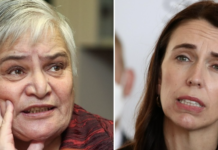Like almost every economically developed country outside the ‘Disunited States’, New Zealand has a universal health system that endeavours to be accessible for all, comprehensive, high quality and affordable.
The country is well placed to achieve this because of its unitary political system and district health board structure, in which each DHB is responsible for ensuring the provision of both community (including primary) and hospital care for defined geographic populations. Our structure established to implement this comprehensive responsibility is an advance on many other universal health system structures such as the United Kingdom and Australia.
Structurally, DHBs blend in well for potential integrated care between communities and hospitals. The provision of hospital care through DHB-owned public hospitals structurally fits in well, but for primary care, it is more complex.
Most primary care is provided by private general practitioner-owned general practices which is declining. GP ownership faces a generational work–life balance shift with increasing proportions of younger GPs uninterested in business ownership, at a time when disproportionately more GPs are looking to retire. This is made compounded by the severe financial impact of cumulative student debt. Slowly increasing corporate ownership expansion is only partially offsetting this decline.
Rubber hitting the road
While GP-owned practices provide good-quality care for many New Zealanders, they aren’t sufficiently aligned to ensure the full access that our universal health system requires. Some of this gap is filled by various non-government organisations (not-for-profits), but only some. The rubber hits [the road] with DHBs’ responsibilities for defined populations. The population of Counties Manukau DHB (CMDHB) population is where the point of impact is felt most sharply.
Counties Manukau is not the first DHB to have to address this challenge. Several years ago, West Coast DHB had to directly employ its own GPs because of the impact of the declining coverage of GP-owned practices. While there were difficulties with West Coast DHB struggling to sufficiently understand the nature of primary care, this decision saved primary care on the Coast. It also meant superior employment conditions and protections for GPs by being covered by the multi-employer collective agreement negotiated by the Association of Salaried Medical Specialists.
The problem for Counties Manukau
CMDHB is responsible for the most economically deprived urban populations in New Zealand. It has the lowest GP-per-capita rate in the country. Segments of its population need more primary care access due to their health needs: for example, 67,000 people live with two or more long-term conditions. Long-term conditions require continuity and structured care management that is not best served by the current provision model.
Last November, the DHB’s executive leadership team endorsed a paper advising on the implications of COVID-19 on primary care in the DHB, specifically general practice, urgent care and pharmacies. It was a constructive and relevant outline of key issues in a local context.
Its focus was on COVID-19, noting this had exacerbated primary care’s ability to address health needs and complexities within the DHB’s population. Health inequities were widening, some quality initiatives had to be deferred, and there was little capacity to engage in new programmes of work. The workforce was tired, stressed and burned out. A small number of clinics had to permanently close (all during the Alert Level 4 lockdown, and mainly corporate owned). Many practices experienced a considerable drop in co-payments.
Some clinics have reduced nurse and medical staffing levels. 77% of practices reported that COVID-19 had a significant-to-severe impact, with 17 per cent reporting staff lay-offs or disrupted leave. In other words, COVID-19 increased the vulnerability of an already vulnerable workforce.
CMDHB’s proactive response
The DHB accepted a recommendation to investigate the benefits and risks of a corporate model of primary care delivery in the event that more practices are absorbed by corporates. The DHB agreed that opportunities for direct DHB provision of primary care should be considered, particularly “in areas of market failure”, and noted that a national research project funded by the Health Research Council and Ministry of Health on different models of ownership and care would provide further insights.
Both the Royal New Zealand College of General Practitioners and GenPro (representing practice owners) were cautiously measured in their responses to the initiative. This was sensible. In contrast the New Zealand Medical Association riddled the initiative as disastrous without regard to what was behind it.
Counties Manukau is a DHB that understands and cares about the defined population it is statutorily responsible for, recognises the severe vulnerability of primary care access, and is proactively investigating how this might be addressed. It should be commended for its pro-activity.
This is the early stage of a journey that might better inform how primary care vulnerability can be overcome, both for Counties Manukau and the rest of New Zealand.
[This blog is a slightly amended version of my column published in New Zealand Doctor]
Ian Powell was Executive Director of the Association of Salaried Medical Specialists, the professional union representing senior doctors and dentists in New Zealand, for over 30 years, until December 2019. He is now a health systems, labour market, and political commentator living in the small river estuary community of Otaihanga (the place by the tide). First published at Otaihanga Second Opinion.






Ian I agree .
There has to be better integration of primary health care and It fits with my idea of one medicare agency taking care of all health care outside of the Hospitals.
Hence why I back the Green parties idea of a remodelled ACC.
If the DHB’s can employ GP’s directly there is no reason why they cannot be brought in under the remodelled acc umbrella .
While I agree that there should be better integration of primary health care I do not think that ACC is the option to use. This is because high health needs are not an accident, we know that garbage in equals garbage out in almost all situations & it is well recognized that large numbers of people are eating & drinking themself to an early grave. Poverty & a lack of hope or opportunity to improve is obviously a factor but we need to change from being treatment-based to making prevention of disease a fundamental part of health. We use tax as a means to restrict smoking & alcohol use so my thought is that financial costs on industries that produce unhealthy food would be one way to change behavior, agreeing on what is healthy is probably a bit harder to do though.
Free, timely, accessible, comprehensive, and effective health care is fundamental to a just society. We should welcome any moves to incorporate general medical practices (the family doctors) into our public health service.
John Tresize: “We should welcome any moves to incorporate general medical practices (the family doctors) into our public health service.”
I completely agree. Such an approach would be of particular benefit in areas with large low-income populations. But in truth, many of us would be better off with DHB-provided GP services, especially as we grow older.
Anyone else shocked they weren’t doing that already?
Someone pointed out yesterday that if Sydney had the same model they would have 23 (or whatever the number is across NZ) different DHBs for that city.
Comments are closed.